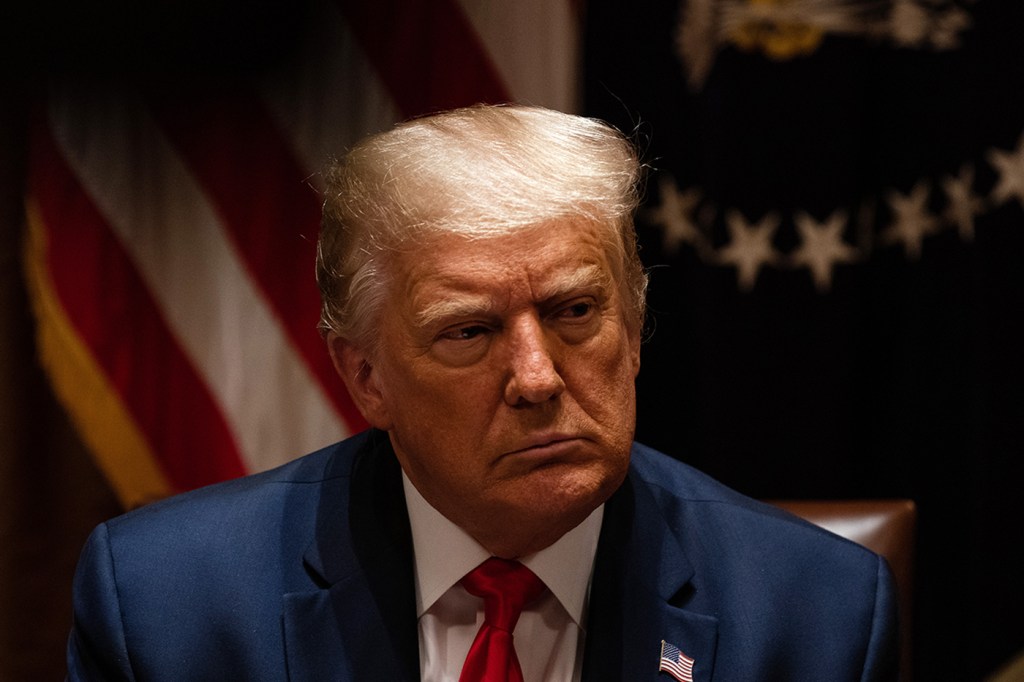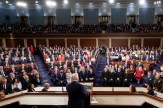Trump indictment could set in motion a years-long process. Here are three legal tools he could use to delay proceedings

Donald Trump is sure to dominate headlines in the coming days and weeks now that he is the first former president ever to be indicted. But Northeastern legal experts say if the case proceeds, there’s a long road between now and its resolution—one that could be filled with an untold number of twists and turns.
“In the weeks ahead we can expect the news media to intensely cover the Trump indictment story, but as for the case itself, while we can expect a flurry of defense motions, nothing much of importance will be decided for months,” says Michael Meltsner, the George J. and Kathleen Waters Matthews Distinguished University Professor of Law and author of the new novel, “Mosaic: Who Paid for the Bullet?”
On Thursday, a Manhattan grand jury voted to indict the former president in connection with a $130,000 hush money payment to porn star Stormy Daniels in the lead-up to the 2016 presidential election. At the heart of Manhattan District Attorney Alvin Bragg’s case is an untested legal theory that, reporting has suggested, would look to connect the Daniels payment to campaign finance law.
Regardless, there are potentially many legal steps that need to be taken now than an indictment is official. Exactly how many depends on what Trump and his legal team decide to do from here, says Rose Zoltek-Jick, associate teaching professor in the School of Law and associate director of the Civil Rights and Restorative Justice Project at Northeastern.
“There are many potential motions [Trump] can pursue” to dismiss and delay proceedings, Zoltek-Jick says.
Motion to dismiss indictment
Zoltek-Jick says that, at the very least, Trump’s team will look to dismiss the indictment on legal grounds—that much is given. Trump has already attacked Bragg and the indictment over social media, consistent with a broader strategy to downplay his legal woes and suggest he’s the target of politically motivated prosecution.
“There is no way Trump isn’t going to push and pull everything he can at that indictment and Alvin Bragg in order to smear it—and him—but also to delay proceedings,” Zoltek-Jick says.
“And he has a particular reason to delay it,” she adds, “because were he to win the next election, he might argue that any indictment against him should be dismissed or invalidated because he is president.”
Motion to change venue
Should the New York case proceed to trial, Trump’s team could move for a change of venue. At this latter stage, a venue change would be a way to expand the pool of potential jurors to include people who might view Trump with a more neutral lens (perhaps even favorably).
“He might argue that he wouldn’t get a fair trial in Manhattan for a number of reasons,” Zoltek-Jick says.
Those reasons could include, but aren’t limited to, the disproportionately large number of Democratic voters in New York, and the possibility that Trump is “too well-known” there, she says.
Motion to swap lawyers
Were Trump to shed his legal team in the middle of the case, it could gum up proceedings as well. Given Trump’s propensity for firing his employees—a habit he took with him to the executive branch when he was president—it’s entirely possible he may opt to change his bench, if it bought him more time.
“And this would not be the first set of lawyers that he has changed midstream,” Zoltek-Jick says.
Zoltek-Jick and Meltsner both say that, while Trump should be held accountable for any potential crimes pertaining to the Daniels payment, the Manhattan case is the least significant in magnitude when considering the bevy of other legal challenges he faces.
“Attention would be better directed to what is happening in the Georgia, Mar-a-Lago and the January 6 cases, or indeed a variety of issues of more importance to ordinary Americans,” Meltsner says.
Trump is scheduled for arraignment on Tuesday, April 4.
“The time between an indictment of any sort and a trial—there’s a long way between here and there,” Zoltek-Jick says.
Tanner Stening is a Northeastern Global News reporter. Email him at t.stening@northeastern.edu. Follow him on Twitter @tstening90.






